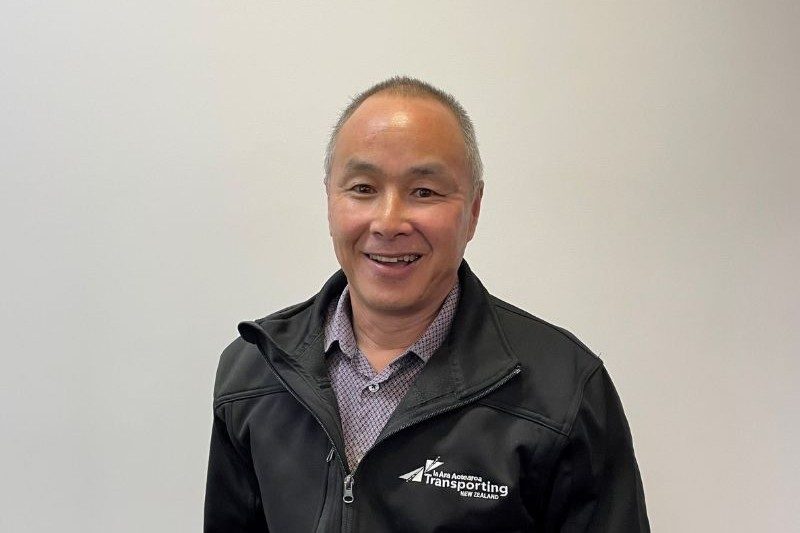Interview of the week: Mike O‘Donnell Commercial manager vWork
 The rise of smartphones and the move to cloud computing were behind Trade Me founder Sam
The rise of smartphones and the move to cloud computing were behind Trade Me founder Sam
Morgan‘s decision to launch mobile workforce platform vWork in 2011.
Commercial manager Mike O‘Donnell says combined with the birth of on-demand services like Uber, the expectations and starting point for service businesses changed dramatically.
“Sam set up vWork to take advantage of that change and to hopefully bring about some kind of paradigm shift to using a cloud platform to connect customers, workers and operations teams.”
O‘Donnell says vWork‘s target market is any business that operates a service business with three sorts of people – workers in the field, customers in the field, and a core operations controller connecting them.
“We‘ve seen strong take up in three areas – the first is around transport; Toll Holdings was an early mover and now we‘ve got a number of large transport operators on-board. The second is in retail, and a customer-centric delivery experience. The third is utilities and infrastructure.”
O‘Donnell said health and safety are integrated into the app, with mandatory hazard checks and incident and accident reporting. It can capture photographs and record data in the field, automatically updating a company‘s safety register.
vWork operates two products off its cloud platform – Business and Enterprise. O‘Donnell says a small business with about a dozen drivers needing basic scheduling only needs the Business level, which is US$50 per worker per month. Most businesses they work with, such as The Warehouse and Toll Group, have more than 75 mobile or operations workers and use the full Enterprise service. This includes API integration and an online customer portal.
“That‘s the full nine yards – full health and safety, automatically generated invoices, advanced route optimisation, and it‘s connected to a company‘s underlying systems so it harnesses data from their CRM and finance systems, utilises it, and then sends the updated data back. Enterprise starts at $90,000 a year. That includes an unlimited number of customers, with up to 75 users including drivers, dispatchers, technology and contact centre staff.”
While optimisation with regard to workers and locations has been around a long time, vWork‘s module goes further.
“It is customer-centric optimisation so it feeds in customer preferences, along with driver capability and availability, and the normal variables of routing and delivery locations. It also includes the ability to consider the drivers‘ training to determine which staff can be used – i.e. can you put this driver in an articulated truck or are they restricted to a transit van.”
Details on route disruptions aren‘t automatically logged by the system, but drivers can use the app to message the operations controller who can do a real time rescheduling based on that data.
O‘Donnell says the optimisation time varies, from about a minute for a company with 200 deliveries over 10 drivers in an afternoon, to about an hour for a company doing 25,000 deliveries over a two-day period.
If there‘s a reason a driver cannot use a certain route, the operations controller can manually reallocate the job.
O‘Donnell says Morgan‘s vision was for a platform that could be easily reconfigured for different companies. Rather than having to ‘hard code‘ or build new functionality, platform settings can be changed, giving different options.
“Land Information New Zealand use it to help allocate work to contractors and maintenance companies across the Port Hills red zone in Christchurch, Noel Leeming for customer centric delivery of large retail items through logistic providers, and Toll for delivery of full container loads and fuel. An overseas client uses it to provide an ‘Uber-like‘ food delivery.”
O‘Donnell says vWork has a dedicated training team who configure the system for each business.
Drivers and mobile workers only need a couple of hours training, while dispatchers and operations controllers usually receive half a day.
“For Business level customers we have a customer service centre in Auckland with both email and phone responses. Alongside that, all Enterprise customers have an account management team focused on supporting the client 100%.”
While O‘Donnell says growth projections are commercially sensitive, vWork is looking forward to continued growth. Based in Auckland and Wellington, vWork currently has 180 business clients in 30 countries.
“The last year has seen some serious growth. We‘ve had a lot of flagship companies in New Zealand and offshore join us. But the key to this growth has been the great ideas we‘ve had from our customer companies. This gave rise to the build of route optimisation, interdependent workflow and integrated health and safety in 2016, and we‘re expecting to see it deliver more customer driver innovation in 2017.”






